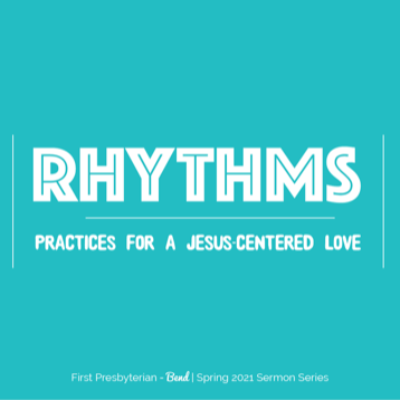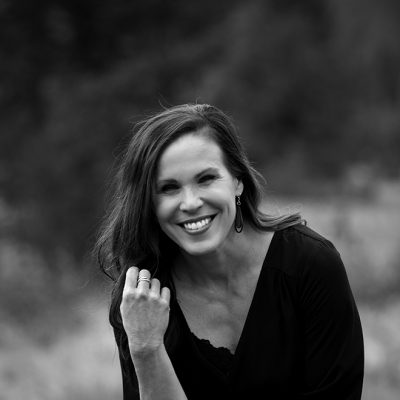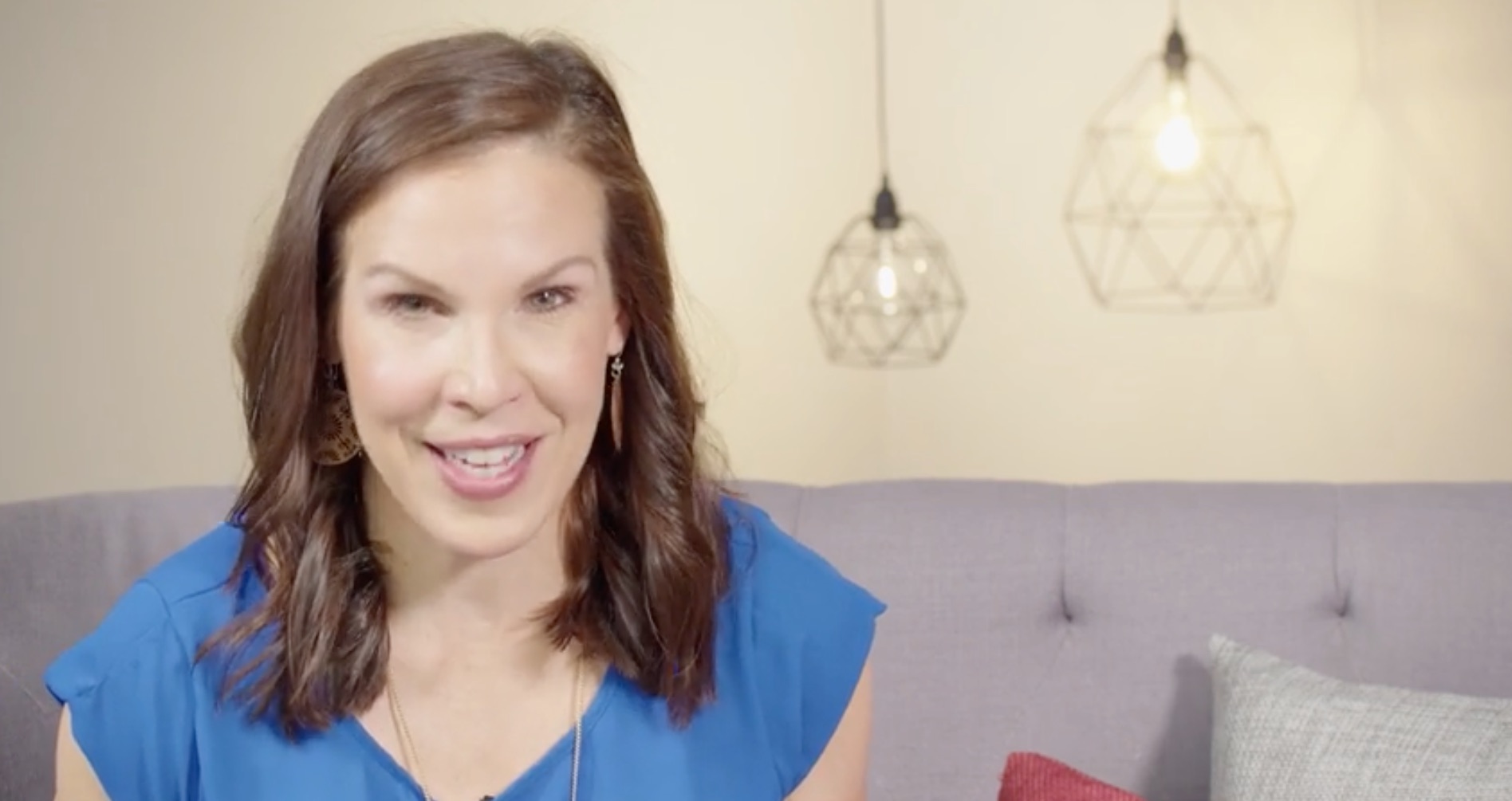May 16th, Rhythms of Rest, Practices for a Jesus-Centered Love with Kally Elliott
A Part of the Series:
Rev. Kally Elliott
Other Articles in:
May 16th, Rhythms of Rest, Practices for a Jesus-Centered Love with Kally Elliott
When I was about six months pregnant with my fourth child, I stood on the sand of an empty Florida beach alongside a good friend and my three year old son, Kellen. My older two boys were a little ways out in the water, jumping over the shallow waves as we carefully watched over them. At one point I asked my friend, does it look like they are getting further away from us? As I called out to my boys, I realized they were trying to make their way back to us, but couldn’t as the tide was too powerful for their little bodies panicking.
I yelled at my friend to stay with Kellen and my pregnant belly, and I went running into the water fully clothed, determined that this would not be the day our lives changed forever. I made it out to my boys and found that I could only touch my feet to the ground when the waters would recess. I knew I could not swim with both boys in my arms, but I couldn’t leave one of them. So I grabbed the youngest of the two and looked straight at my older son, who I knew was a stronger swimmer, and said the one thing that never works when someone is stressed.
But miraculously, it did. This time I said to him, You have to relax, you have to relax. And when the next wave comes, I want you to ride it as far as you can into shore. I will be next to you with Spencer. And he did. Thank God he did. He relaxed and let the wave carry him close enough to shore that my friend could make it out to him to grab him, hauling him to the beach, gripping my younger son in one arm and using the other to guide me.
I also rode the wave in and we were safe. When I was 16, I took lifeguard training. The instructors taught us that if you jump in to save an actively drowning person, well, you have a solid chance of getting hit by one of their flailing hands or worse, grabbed and dragged under the water as they try to save themselves. So the trick is to swim up behind them and reach under their armpits, grasping their shoulders firmly like this. Hopefully you have a rescue tube to make things easier, but even if you do not, once you have the victim firmly in your grasp, then you lean back pulling the victim onto your chest.
So they are literally lying back, relaxed as you swim to safety. Whether you are trying to save yourself or someone else, if you are still kicking and screaming, trying by your own efforts or activity to make the water swimable, you will most likely drown. It’s only when you become still when you relax that you can be rescued. This pandemic year has brought extraordinary challenges, and even as we begin to dip our toes into what used to be normal, you know, like attending school or entertaining friends or going to restaurants, the effects of a year of isolation are still bearing down on many of us.
I mean, how does one jump back into schedules and social obligations after spending a year at home? As life begins to flirt with what used to be normal, many of us, including me, are caught between excitement and fear, anticipation and even dread. There’s a level of unchecked anxiety humming just beneath the surface, and so many of us. And what do we do with that anxiety? Do we jump back into the life of hyper activity and performance?
Do we slip into overwhelm and apathy? How do we do this? How do we live life on the other side of the pandemic? And and how do we help those who are weighed down, feeling deeply the effects of over a year of social isolation, uncertainty and loss? But it’s not just the pandemic that has brought weariness and anxiety to our souls. We’re tired of black persons being treated as if their lives matter less, as a white American, I am exhausted from carrying the heavy burden of the sin of racism and the behaviors that go along with it.
The heaviness of it is weighing me down. We are weary of politics and anti-science conspiracy theories of yet another mass shooting. I am so very weary of mass shootings. Come to me, Jesus said, all you that are weary and are carrying heavy burdens and I will give you rest, take my yoke upon you and learn from me, for I am gentle and humble in heart and you will find rest for your souls. Rest. In these past few months, we’ve been in a sermon series called Rhythm’s Practices for a Jesus centered Love, wondering together how we might pattern our own lives after the life of Jesus.
But see, there’s a danger in this series, and it’s that people like me have a tendency to turn everything in, including our spirituality, into a wellness plan. It goes something like this. What’s see, I’m like whole 30 now, no sugar for me. Only organic super foods and the occasional macho latte. Also, I’ve added journaling and meditation to my daily regime of yoga and foam rolling. Oh, and and I’m practicing living like Jesus.
But Jesus offers us rest. And that wellness plan, it sounds exhausting as well as annoying. And if we are adding one more thing to our To-Do list, if we are making a relationship with God about something we do, we’ve kind of missed the point. Come to me all you that are weary and I will give you rest. But just as rest is not another task in a comprehensive wellness plan, rest is also not simply a day at the spa or a long hike in the mountains.
It’s it’s not binge watching Netflix or sleeping late on the weekend, a nap or even a week long dream vacation rest is different than what our consumeristic culture wants to sell us to rest is to trust that you are being held, that there is something or someone greater than you who loves you and carries you. Theologian Frederick Dale Bruner captures this kind of trust when he writes Relaxing. Relaxing is a good modern translation of trusting in or believing in. We relax by allowing ourselves to be held by God, regardless of the storm and circumstances in which we find ourselves.
What if what if every time you read the word believe or trust in the Bible, you replaced it with relaxed? I learned it in lifeguard training, a drowning person cannot be saved until they relax and let the water or the lifeguard or the wave hold them up and carry them to calm waters. Relax into Jesus. Patterning our life in the way of Jesus is not something that we do, it’s it’s not another task. And yet it’s also not as mindless as a good Netflix binge.
When we finally relax in to Jesus, we learn in the chaos of our everyday life that we are held. Richard Walsh says it says it is a matter of waiting in love, returning to love, trusting that love is the unceasing stream of reality. Is anxiety running a million miles an hour in your gut, do the wheels of your mind keep turning even as your body wants so badly to go to sleep? Are you drowning? But there’s still just a little bit of fight left in you to tread in this water.
Stop, just stop. Because when you acknowledge you are drowning, that is when you can be rescued. In our worship, week after week, we practice something called confession, the idea or the word confession, it has a bad reputation and I get it. I mean, who needs the church to make them feel guilty about what they’ve done or worse about themselves? I mean, I can feel guilty without the help of the church. Thank you very much.
But to load you down with guilt is not the reason we share in a prayer of confession each week. The prayer of confession is a spiritual practice. It’s how we practice saying, I can’t do this on my own. I’m drowning, and I need your help. God, all week long. All week long, we grit our teeth and we hold it in. We pretend to be good and fine and happy and well. And then and then we come to this practice and we can relax and we can let it all go.
The secret is out, none of us are perfect. You are not perfect. You’re not even fine or good. I mean, you’re doing the best you can, but life is difficult. And by praying this confession together, by hearing the voice of the person next to or behind us or while in a pandemic, by reading the comment online, we remember each other and we remind each other that we are not alone in our need for help, that there is nothing to be ashamed of.
There is no reason to hide. We are all together in our need for grace and love and relaxation. In a way, the act of confessing together creates a place and a people with whom we belong, where nobody stands outside. In an LaMotte’s book stiches, she writes. One of the hardest lessons I had to learn was that I was going to need a lot of help. And for a long time, even this morning, we have felt weariness this last year, wearing it like a heavy yoke upon our shoulders, Jesus instructs instructs us to take his yoke upon us instead.
In Jesus’s time, a joke was a wooden instrument that yoked to oxen together shoulder to shoulder, bearing the work and weariness together. Frederick Dale Bruner writes, A yoke is a work instrument. Thus, when Jesus offers a yoke, he offers what we might think tired workers need. Least I mean, they need a mattress or a vacation, not a yoke. But Jesus realizes that the most restful gift he can give the tired is a new way to carry life, a fresh way to bear responsibilities.
The yoke is an allegorical reminder that we cannot do the work we’re given to do alone. It’s easier when we are yoked together and it’s not that it asks nothing of us relaxing it. It’s not that even relaxing asks nothing of us. Yes. In many versions of the Bible, Jesus calls his yoke easy. But there are better translation translations such as My yoke is good to bear because we do still have work to do. The point is not that Jesus’s yoke asks nothing of us.
Rather, the point is that it fits us well. It does not chafe. It is the right size. And it’s we’re doing it together, so it works, leading us to get the job done of moving forward after a pandemic, the necessary work of becoming antiracist, the difficult work of caring for those across political lines of stopping gun violence. And it also allows us to do all of this work without falling into weariness and exhaustion. Because we do it together.
Take my yoke upon you and learn from me, for I am gentle and humble and heart. As far as I know, this is the one place in the Gospels where Jesus actually describes his heart and he says it is gentle and humble, not demanding more from us, but wanting everything for us. And as we come carrying our heavy burdens, there is a tenderness coming from God’s heart, blessing your weariness, affirming that the yoke has been too darn heavy, that that the rest that is yours and his mine never comes from working so hard to stay afloat.
It comes from God’s heart. Jesus invites us to come with all of our crippling anxiety and our blanket of shame and overfunctioning and invites us to relax into him, to take his yoke upon us so friends rest, relax, knowing that you are held and valued and loved, not because of your striving or your ability to stay above the chaotic waters, but because of grace. Rest in the knowledge that God loves you madly, not because of who you are, but because of who God is.
Relax into that. Not because you should, but because you can. Amen.



